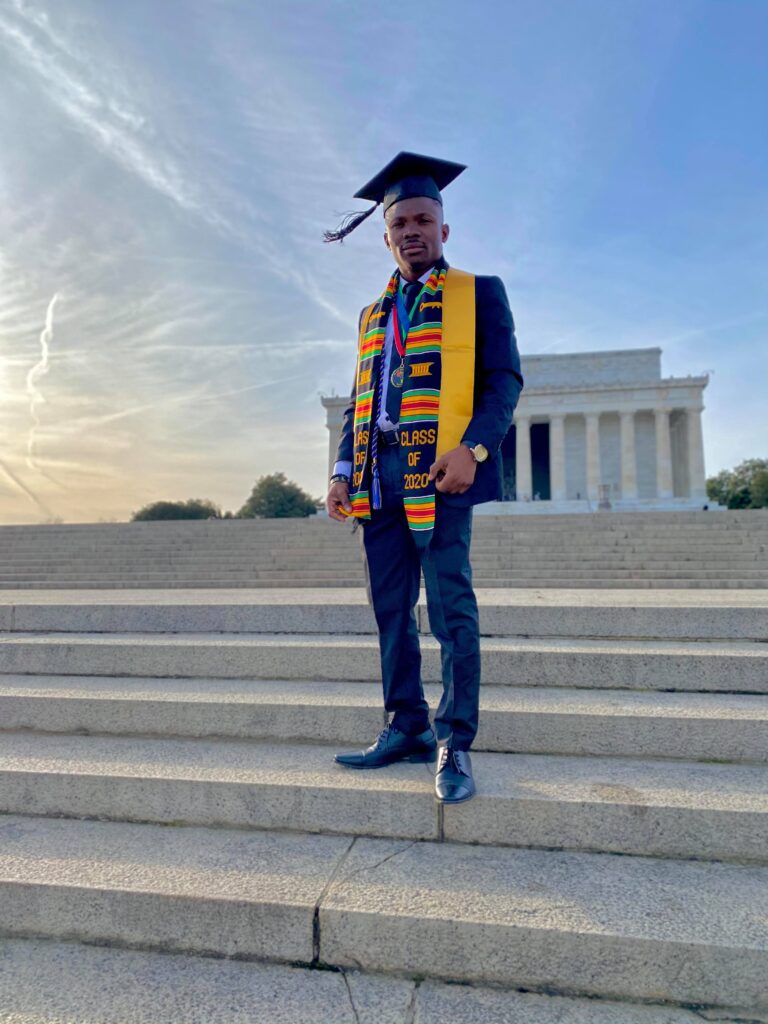Leveraging Short-Term Credentials to Unlock Opportunity: New Futures
Article by Aaron Merlos, 2023 Scheidel Foundation College Success Fellow
According to the National Student Clearinghouse Research Center, only 49% of part-time college students who enrolled in shorter-term degree programs in Fall 2020 are persisting in their education, meaning more than half have “stopped out.” But the Scholars at New Futures in Washington, DC, are defying national trends. 95% of their 2022 Scholars continue to persist in their education, meaning only 4% stopped out—well below national rates. As of February 2023, 86% of Scholars selected in the last five years are persisting in or have completed their postsecondary programs. The Scheidel Foundation has provided grants to support their work for multiple years, finding that the organization fills an important niche: New Futures focuses on creating educational opportunities for rewarding careers by partnering with young people as they transform their lives through short-term postsecondary credentials. The Scholars have earned a total of 434 degrees since the organization’s founding in 1999.

Support for Those Who are Traditionally Excluded
At the heart of New Futures’ mission lies a commitment to providing educational opportunities to those who might otherwise be excluded. Founded in 1999, the organization will serve nearly 270 Scholars in 2023, ranging from 17-29 years old. All the students New Futures serves are from households earning less than 80% of the median family income and nearly 90% of these students are the first of their families to attend postsecondary programs. Each of them faces systematic barriers that limit their access to higher education as well as the workforce, such as difficulties navigating postsecondary institutions, immigration challenges, insecure housing, conflicting parental obligations, or financial instability.
Despite these barriers, New Futures has helped its Scholars achieve the high 5-year average persistence and graduation rate of 86% by offering a range of support. The organization provides its students with scholarships, a community cohort approach, individualized holistic coaching, and other services to assist its students in pursuing higher education and early career opportunities.
Connecting Education to Workforce Development and Economic Mobility
New Futures sets itself apart by investing in young people with a deliberate combination of flexible scholarships, academic advising, career coaching, and a lot of heart to help its Scholars launch in-demand careers that will lead to financial security. All Scholars receive access to a career-readiness curriculum to bridge the gap between education and professional opportunities. The organization continually adapts to the needs of its students and has recently added workshops on financial literacy, mock interviews, resume writing, mock networking support, job search strategies, and much more.
New Futures provides Scholars the opportunity to boost their employability and provides a more seamless entry into the workforce by connecting them with real-world experiences that prepare them to launch in-demand careers. This focused strategy has been paying off: at least 85% of their 2022 graduates went on to obtain jobs or enroll in further education. Graduates of New Futures become qualified professionals in high-growth fields such as business, information technology, and health sciences.
Broader Community Impact
The organization’s emphasis on mentorship and leadership development fosters a culture of giving back. Graduates of New Futures often become peer mentors and role models for the next generation of Scholars, creating a positive cycle of support and inspiration within the community. This ripple effect leads to stronger social cohesion, increased civic engagement, and a more empowered citizenry. By breaking down barriers, creating opportunities, and fostering social change, New Futures is creating a brighter future for systemically excluded communities and contributing to a more equitable society.

